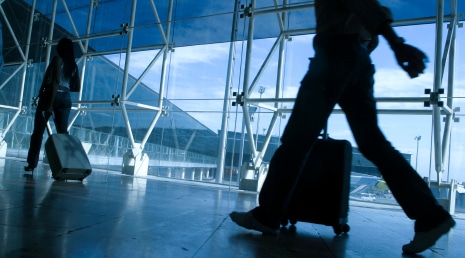7 Safety Tools Every Expat Family Needs Before Relocating

Relocating to a new country brings both exciting opportunities and unfamiliar challenges. Expat families often face safety concerns that differ greatly from what they are used to at home. Adapting to new environments requires preparation beyond paperwork and housing arrangements. Reliable safety tools reduce risks and give families confidence in everyday life abroad. Prioritizing security before moving prevents stress after arrival. The right precautions protect both loved ones and possessions in an unfamiliar setting.
What Safety Tools Every Expat Family Needs Before Relocating?
1. Emergency Contact Applications
Emergency contact applications store vital information such as embassy details, medical numbers, and local police contacts. They keep this data organized in one secure place for quick use.
These applications provide panic alerts and instant location sharing with pre-set contacts. Families can reach one another immediately during accidents or sudden crises.
Offline modes allow emergency contact applications to function without active networks. This ensures reliable communication even in areas with poor connectivity.
2. Digital Identity Protection Tools
Digital identity protection tools secure sensitive data during international relocation. They reduce the risk of online theft when using unfamiliar banking systems or registration portals.
Encryption technology blocks surveillance when connecting through public Wi-Fi. Identity alerts warn families when unusual account activity occurs.
Password storage systems strengthen account security with complex, unique credentials. Families stay safer during online shopping, remittances, and school applications.
3. Portable First Aid Kits
Portable first aid kits give immediate medical support for cuts, burns, and minor injuries. They prevent small incidents from escalating before professional care is available.
Travel-sized kits fit easily in backpacks, cars, or luggage during daily routines and long trips. Families can customize them based on age, allergies, and medical needs.
Including pediatric medicines, thermometer strips, and antihistamines makes them more effective for children. Readiness with a well-stocked kit lowers health risks in unpredictable situations.
4. Fire and Carbon Monoxide Detectors
Fire and carbon monoxide detectors provide essential protection in new living spaces. They alert families to smoke and toxic gases before danger escalates.
Portable detectors work independently of building systems, offering consistent safety in rentals. Carbon monoxide sensors protect against invisible threats from heating or cooking appliances.
Smart detectors enhance safety with mobile notifications. Families receive timely warnings even when they are away from home.
5. Portable Door and Window Locks
Portable door and window locks increase security in hotels, rented apartments, or temporary housing. They prevent unauthorized entry regardless of who holds a copy of the key.
Travel locks, jammers, and security bars are easy to install and remove without tools. These devices create an extra barrier against intruders.
Parents gain added control by preventing children from opening doors or windows unsupervised. Portable locks create safer environments while maintaining privacy and peace of mind.
6. Personal Safety Alarms
Personal safety alarms provide fast protection during threatening encounters. Their loud sirens immediately draw attention and disrupt aggressive behavior.
Lightweight designs make them easy to carry on keychains, bags, or belts. Children, teenagers, and seniors benefit from quick access to these alarms.
Some devices combine sound with light for greater effectiveness. Rechargeable options ensure reliable use in both urban and remote locations.
7. GPS Trackers
GPS trackers give families real-time location visibility for both people and belongings. They reduce anxiety in crowded spaces or unfamiliar neighborhoods.
Wearable trackers allow parents to set safe zones and receive alerts if children wander outside them. Emergency buttons on devices provide a direct call for help.
Compact trackers protect luggage, electronics, and important documents during travel. Quick recovery of lost or stolen items lowers stress during relocation.
How To Use GPS Tracker Before Relocating?
Set Up the GPS Tracker in Advance
Test the GPS tracker before departure to ensure accuracy and functionality. Setting it up early helps families understand the device features without last-minute confusion.
Create Safe Zones for Children
Use geofencing features to define safe areas such as schools or playgrounds. Notifications will alert parents instantly if a child leaves the designated boundary.
Attach Trackers to Valuables
Place GPS trackers on a car, luggage, electronics, or important documents during travel. This ensures quick recovery if items are misplaced or stolen in transit.
Share Access with Family Members
Allow trusted family members to view the tracker’s live location. Shared access improves coordination and provides additional security during relocation.
Check Battery Life Regularly
Charge devices fully before travel and monitor battery levels throughout the journey. A powered tracker guarantees uninterrupted tracking during long trips.
Conclusion
Relocating as an expat family becomes smoother when safety tools are prepared in advance. These essentials reduce uncertainty and create a secure foundation in a new environment.
Every tool, from emergency contact applications to GPS trackers, serves a clear protective role. Together, they cover health, digital security, home safety, and personal protection.
Planning with these resources before relocation strengthens confidence for both adults and children. A well-prepared family experiences less stress and more stability in their new surroundings.